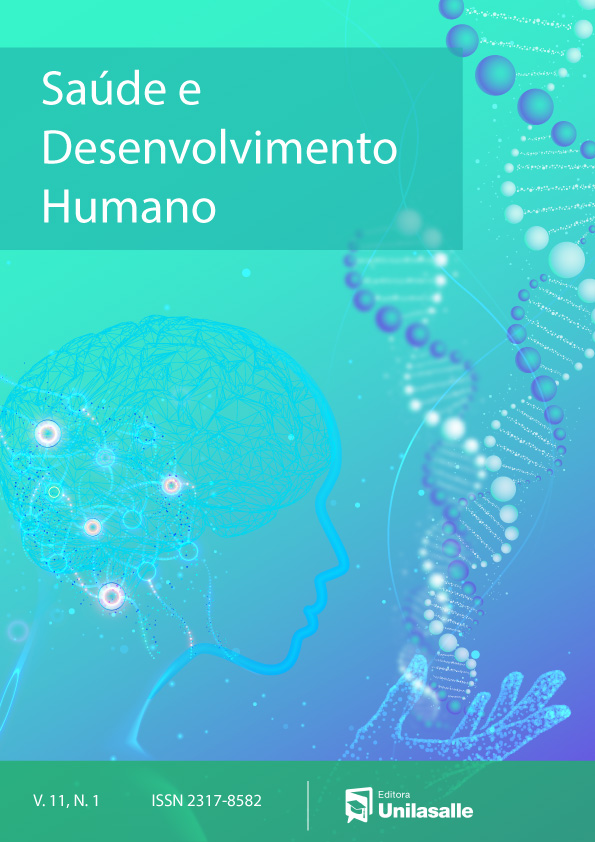Highly Palatable and Hypercaloric Foods Chronic Intake Impair Food Control
DOI:
https://doi.org/10.18316/sdh.v11i1.9605Palavras-chave:
soft drink, food intake, feeding behavior, cafeteria diet, obesity.Resumo
Objectives: To evaluate the effects of soft drink and/or cafeteria diet consumption on eating behavior and metabolic parameters in rats. Material and Methods: Two months male Wistar rats were treated for twelve weeks, divided into groups: 1) CON: standard chow and water (SCW); 2) CD: cafeteria diet and SCW; 3) CS: caloric soft drink and SCW; 4) NCS: non-caloric soft drink and SCW; 5) CD+CS: cafeteria diet, caloric soft drink and SCW; and 6) CD+NCS: cafeteria diet, non-caloric soft drink and SCW. Results: The cafeteria diet intake resulted in higher energy consumption (p<0.0001), a lipid consumption increase (p<0.0001), and a protein reduction intake (p<0.0001), which contributed to an increase in body weight (p<0.0001) compared to the controls. The CD+NCS group visceral fat reduction may be related to a 17% reduction in sugar consumption, compared to the CD+CS group, and to the soda's caffeine content, with less insulinogenic effect. Conclusion: The animals who received the cafeteria diet consumed more ultra-processed foods, resulting in increased energy consumption, greater weight gain, and visceral fat. On the other hand, animals who received cafeteria diet and non-caloric soft drinks showed a reduction in visceral fat levels compared to the other cafeteria diet groups.
Downloads
Publicado
Edição
Seção
Licença
Autores que submetem seus manuscritos para serem publicados nesta revista concordam com os seguintes termos:
- Autores mantêm os direitos autorais e concedem à revista o direito de primeira publicação, com o trabalho simultaneamente licenciado sob a Licença Creative Commons Attribution que permite o compartilhamento do trabalho com reconhecimento da autoria e publicação inicial nesta revista.
- Em virtude dos artigos aparecerem nesta revista de acesso público, os artigos são de uso gratuito, com atribuições próprias, em aplicações educacionais e não-comerciais.
- Os autores concordam com os termos da Declaração de Direito Autoral, que se aplicará a esta submissão caso seja publicada nesta revista (comentários ao editor podem ser incluídos a seguir). E que anexam declaração assinada que todos os autores leram o documento a ser submetido e que aceitam os termos desta revista.

Os trabalhos publicados na Revista Saúde e Desenvolvimento Humano de ISSN 2317-8582 está licenciado com uma Licença Creative Commons - Atribuição-NãoComercial 4.0 Internacional.
Baseado no trabalho disponível em http://revistas.unilasalle.edu.br/index.php/saude_desenvolvimento/.


